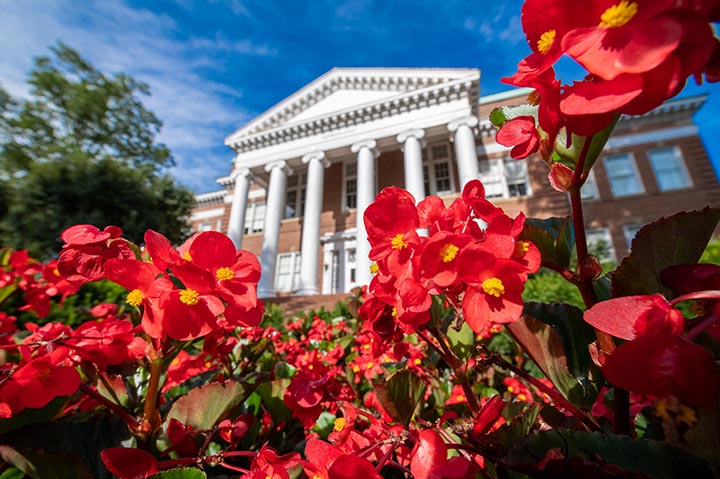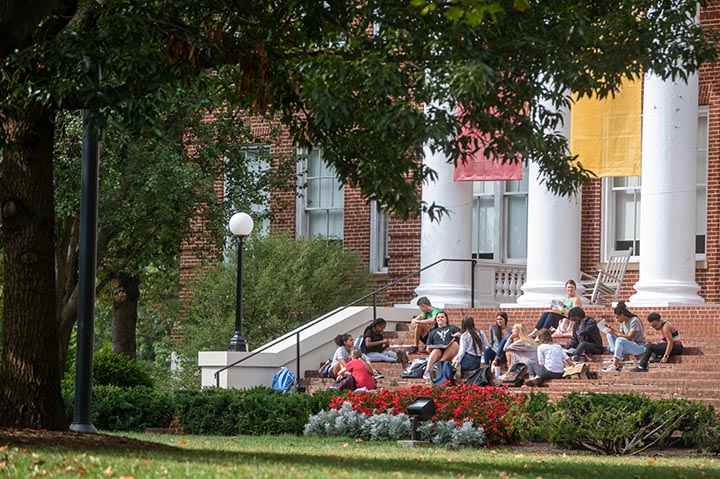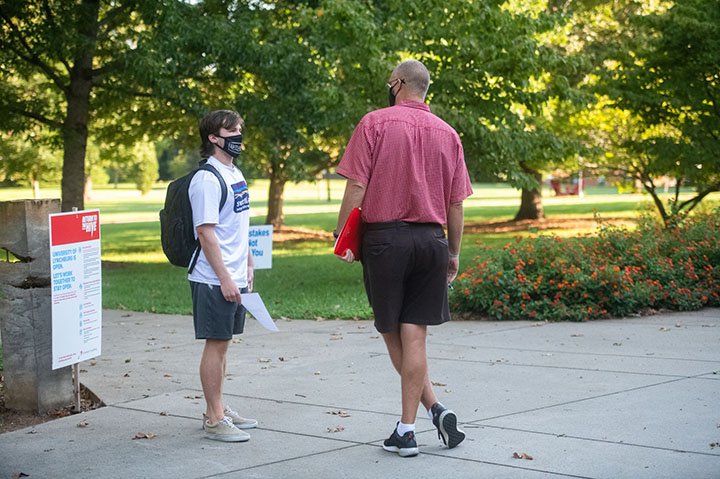 The University of Lynchburg continues to stake its claim among U.S. News & World Report’s Best Colleges. Lynchburg’s 2021 rankings include a steady 22nd spot among regional universities in the South and a 19th place for Best Value in that category. New this year is the University’s mention on the Top Performers on Social Mobility list, where it ranked 61st.
The University of Lynchburg continues to stake its claim among U.S. News & World Report’s Best Colleges. Lynchburg’s 2021 rankings include a steady 22nd spot among regional universities in the South and a 19th place for Best Value in that category. New this year is the University’s mention on the Top Performers on Social Mobility list, where it ranked 61st.
“University of Lynchburg is excellent at meeting students where they are, no matter their circumstances, and we help students reach for and exceed their goals,” Vice President and Dean for Student Development Dr. Aaron Smith said.
According to U.S. News, 37% of Lynchburg’s entering class received Pell grants in Fall 2012 and 2013 (on average), with 51% of those Pell Grant recipients graduating within six years. For comparison, Lynchburg’s overall six-year graduation rate is 59%. Both Pell Grant statistics combined catapulted Lynchburg onto the Top Performers on Social Mobility list.
“Some [of our] students are legacy students, so they understand what Lynchburg has to offer, and that’s exactly why those students/families return,” Smith said. “Students who are Pell Grant-eligible may have a higher need — and we have a culture full of people who truly want the best for individual students. We believe in structuring a clear path to success for all of our students — no matter their background or their destination. I think that’s what makes us special.”
Lynchburg appeared at the very bottom of the Most Debt list with an average loan debt of $27,000 per graduate in 2018. Its financial aid office works hard to keep loan amounts reasonable and to prepare students to understand and manage their debt responsibly. The University prides itself on awarding financial aid to 100% of students.

And that’s where Lynchburg’s value proposition comes in. Because of merit and need-based aid, the average student pays just over $22,000 in tuition, room, and board — a bargain for a private education with easy access to professors and a student-to-faculty ratio of 11 to 1. It’s that combination of academic quality and cost — after accounting for total expenses and financial aid — that landed Lynchburg on U.S. News’ Best Value list once again.
For its 2021 rankings, U.S. News examined 1,452 U.S. bachelor’s degree-granting institutions on 17 measures of academic quality. Metrics used included the schools’ student-to-faculty ratio and the average federal loan debt of graduates. According to U.S. News, “only thoroughly vetted academic data from our surveys and reliable third-party sources are used to calculate each ranking factor.”
The publication also lists information directly reported by schools on their application requirements, tuition and financial aid policies, student body demographics, and campus life. Each college’s individual profile also features post-graduate earnings data by undergraduate focus and user ratings and reviews submitted by alumni. More on U.S. News’ methodology can be found here.
While data is important, even U.S. News will admit that numbers don’t tell the whole story. “Taken together, the rankings, directory and search tools — combined with interviews, virtual tours, college visits and your own intuition — can be a powerful resource in your quest for the best fit college,” its editors write.
At Lynchburg, a small university focused on life-changing educational opportunities and servant leadership, it’s always been about the whole package.

“We provide an exemplary educational experience in and out of the classroom so that our students may meet their maximum potential,” President Dr. Alison Morrison-Shetlar said. “Our academic excellence, leadership development, service to our community, and commitment to diversity, equity, and inclusion ensure that all of our students are engaged and respected and valued for what they contribute to our campus community.
“Students grow and develop, under the mentorship and care of our exceptional faculty and staff, as positive contributors to society, turning their passion into purpose.”
Provost and Vice President of Academic Affairs Dr. Allison Jablonski noted that while Lynchburg’s holistic approach to learning is rooted in the liberal arts, it’s also vital in today’s rapidly changing world — perhaps more so in 2020 than ever before.
“A Lynchburg education is grounded in the liberal arts, and is an approach to learning that empowers our students to deal with complexity, diversity, and change — all of which are necessary for the 21st-century workplace and life,” Jablonski said.
“Our students’ experiences help them develop a sense of civic responsibility, as well as strong intellectual and practical skills, including written and oral communication, analytical and problem-solving ability, and the capacity to apply knowledge and skills in real-world settings.”
You can take a look at Lynchburg’s full U.S. News profile and data here.

